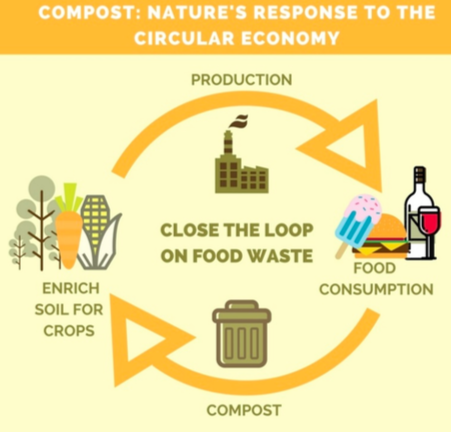Composting: what goes around

The role of composting in the fight against climate change will be in focus this year during International Compost Awareness Week (ICAW), to be held from May 4th to 10th in Australia.
As the world and global governments tackle the effects of climate change through increased frequency of extreme weather events, such as flooding or bushfires, we all have a powerful tool at our fingertips that can help - compost. Compost benefits the climate by reducing greenhouse gas emissions at landfills, enhancing carbon dioxide uptake by vegetation, which in turn helps to increase our resilience to the effects of climate change.
“As a community we can all contribute to a healthy planet by keeping food scraps out of landfill and one of the ways is through composting either at home or through a council provided collection service,” says Chris Rochfort, CEO of the Centre for Organic Research & Education (CORE).
Some of the many ways composting helps combat climate change include:
• reduces the amount of organic waste that goes to landfill, which when disposed to landfill breaks down anaerobically and releases methane. Methane is a greenhouse gas with a global warming potential around 28 times that of carbon dioxide over a 100-year period;
• improves drainage and aeration in the soil;
• produces a nutrient-rich soil amendment;
• retains soil moisture and reduces plant diseases/pests;
• reduces heat island effects in urban areas; and
• increases resilience to the effects of climate change such as drought and extreme weather.
When compost is returned back to the soil it improves plant health and promotes biodiversity.
“If we reduce and recycle organic materials such as garden organics and food organics (FOGO), we can reduce greenhouse gas emissions at landfills, promote uptake of carbon dioxide by vegetation, and make our environment more resilient to the effects of a changing climate”, Rochfort says, adding that compost can solve so many of humanity’s current challenges from climate change, such as soil moisture loss and contaminated run-off and sediment from entering our waterways.
“This is on top of compost being a fantastic amendment to add to soils to assist plant growth, nutrient retention and storing carbon”, he suggests.
“There’s no other product that can fulfill as many functions as compost can and it can also save you money on using fertilisers and additional water.”
Compost might not be the most conventional solution to combating climate change but it’s something every household can do to utilise its full potential and stop landfill pollution, save soil and reduce emissions.